Entrepreneurial Mindset: Presentation for Business Start-up Show
VerifiedAdded on 2023/04/21
|18
|1134
|325
Presentation
AI Summary
This presentation delves into the entrepreneurial mindset, defining entrepreneurship and highlighting the differences between entrepreneurs and business managers. It outlines the characteristics, skills, and motivational drivers of successful entrepreneurs, providing examples of notable figures like Elon Musk and Steve Jobs. The presentation further explores the entrepreneurial mindset, emphasizing aspects such as customer focus, networking, vision, and quality control. It discusses the role of personality traits like passion, flexibility, and optimism in shaping entrepreneurial motivation and mindset. Additionally, it examines how background and experience can foster or hinder entrepreneurship, referencing the influence of family, education, and social experiences. The presentation concludes by emphasizing the importance of recognizing market opportunities, committing resources, and creating a business organization to implement innovative ideas.
1 out of 18




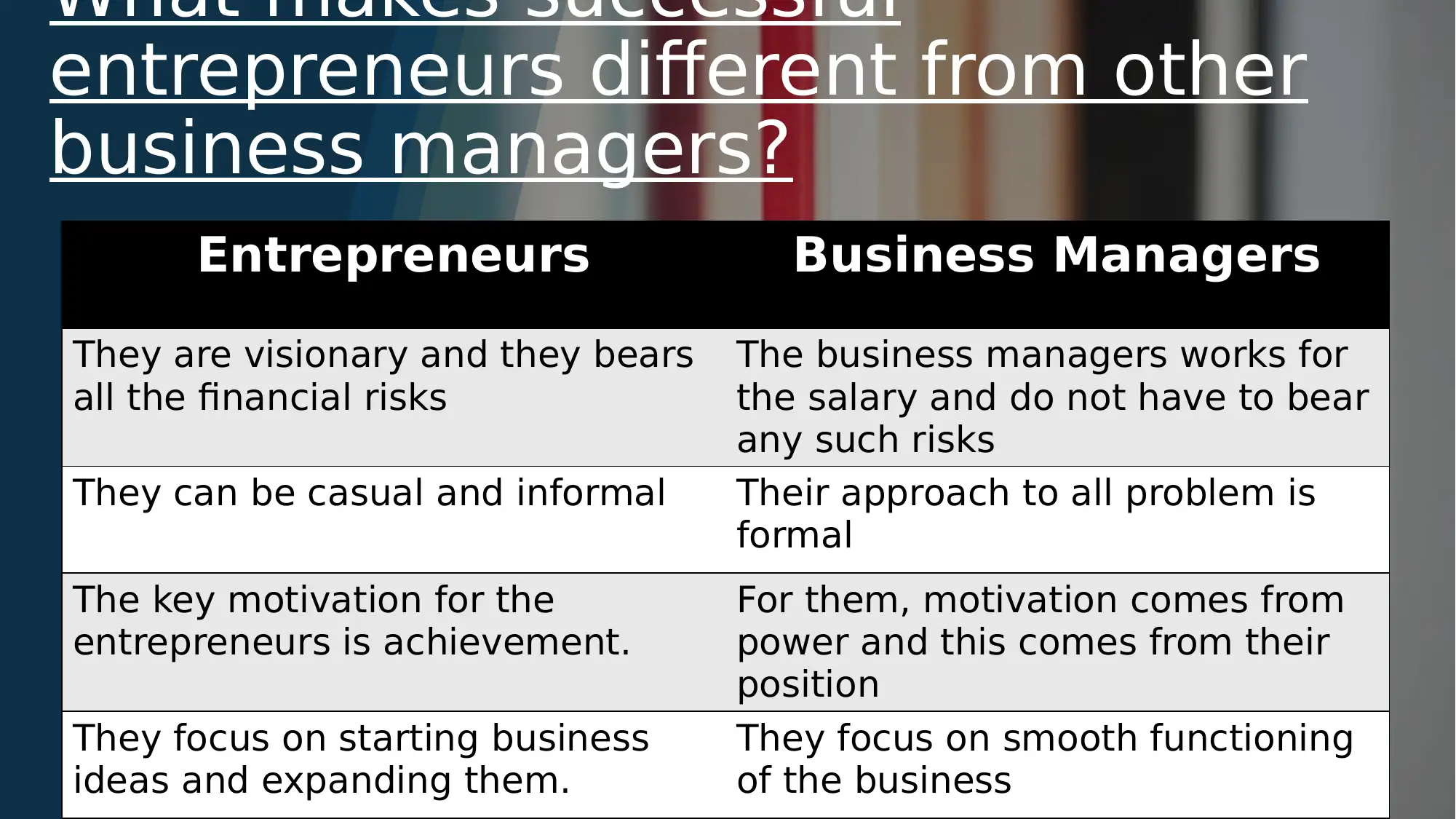
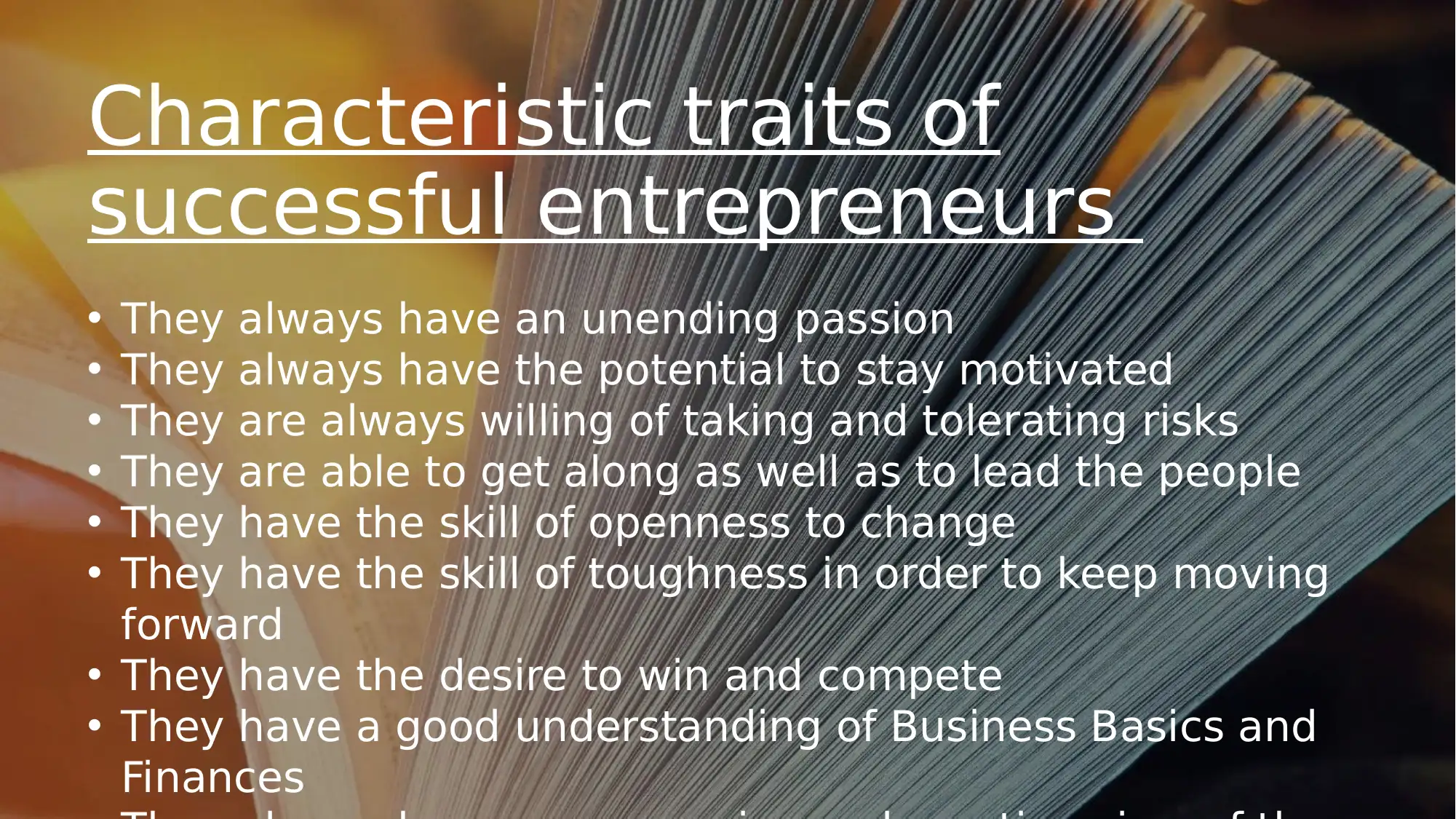

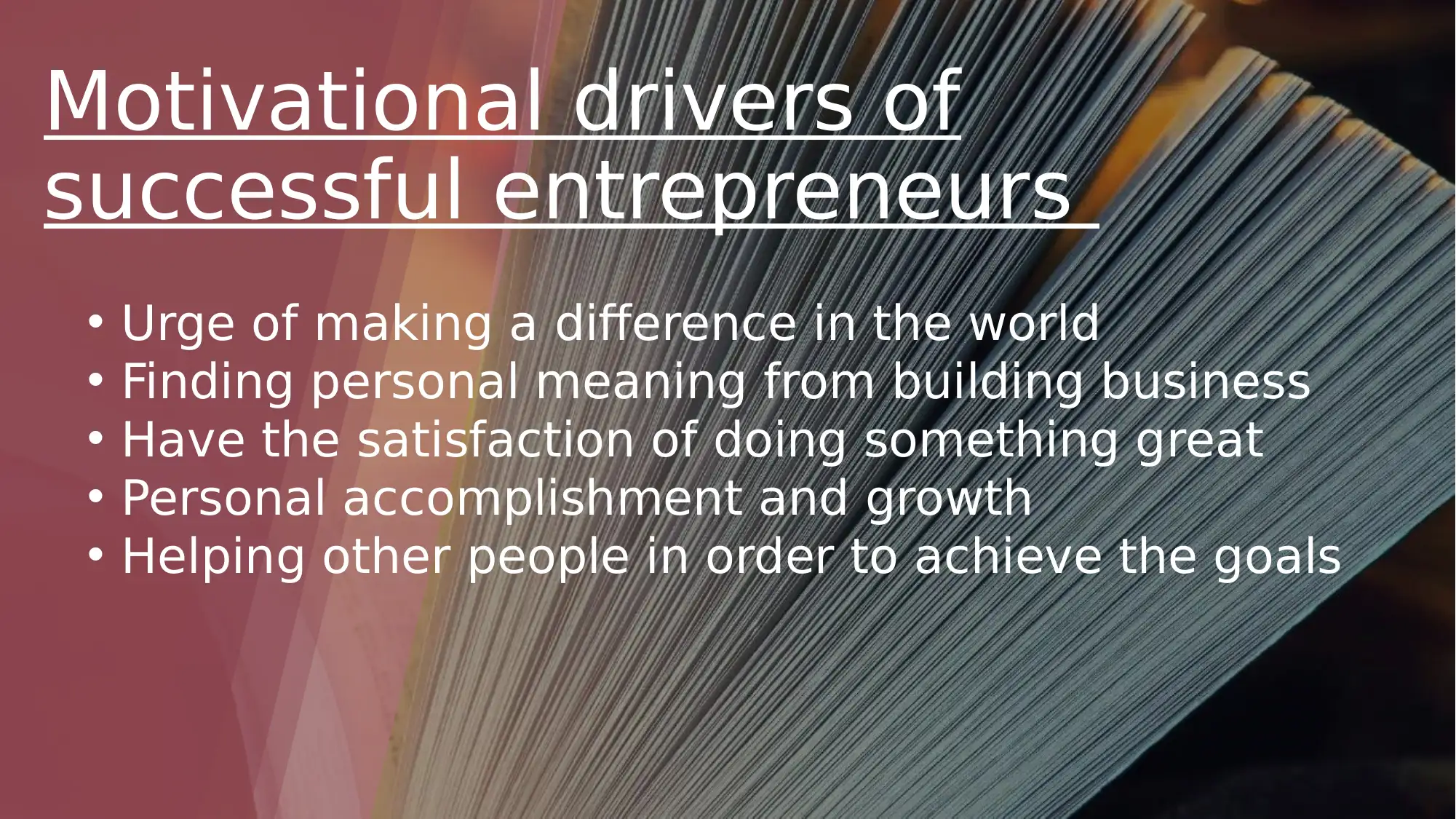

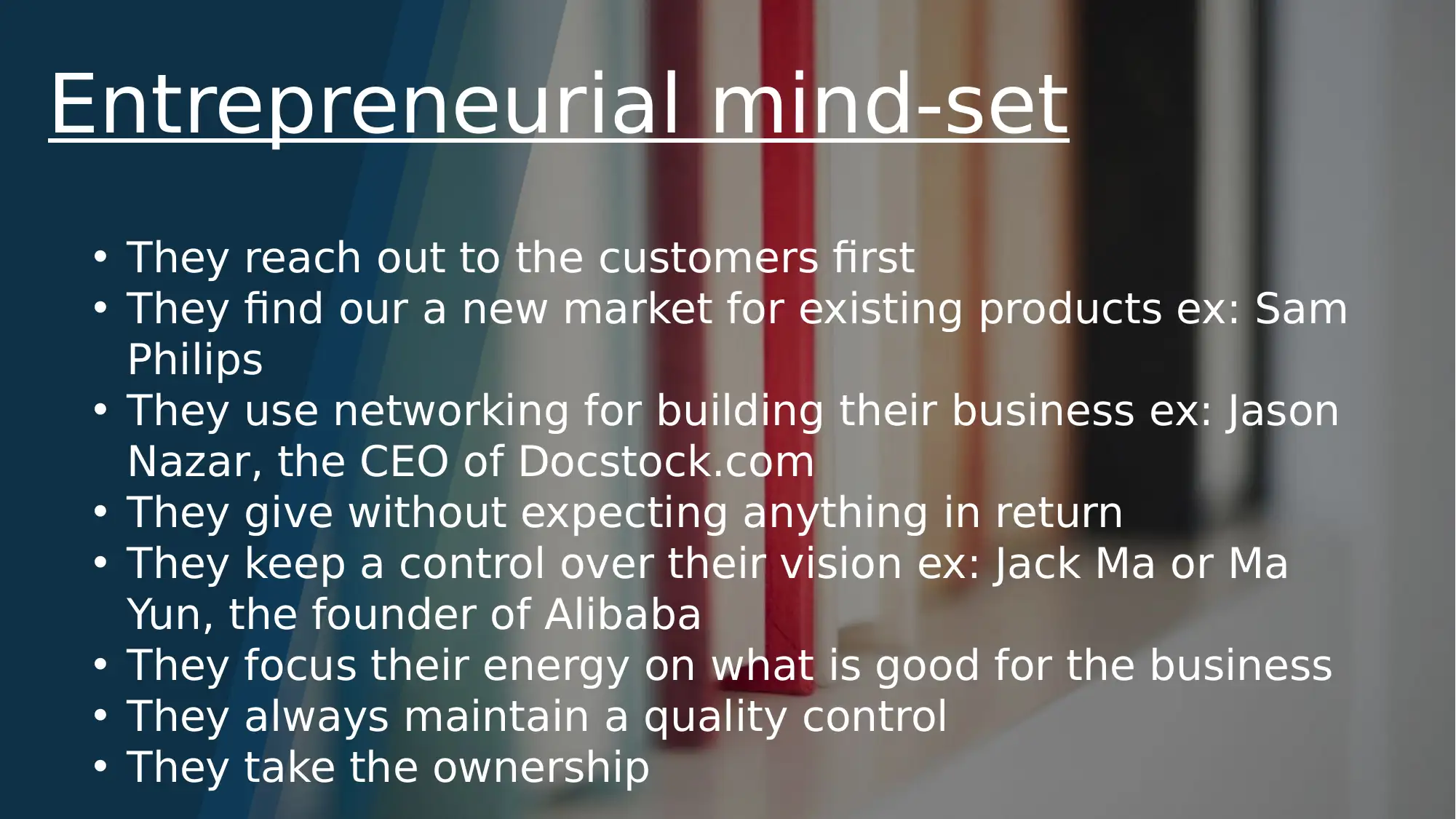


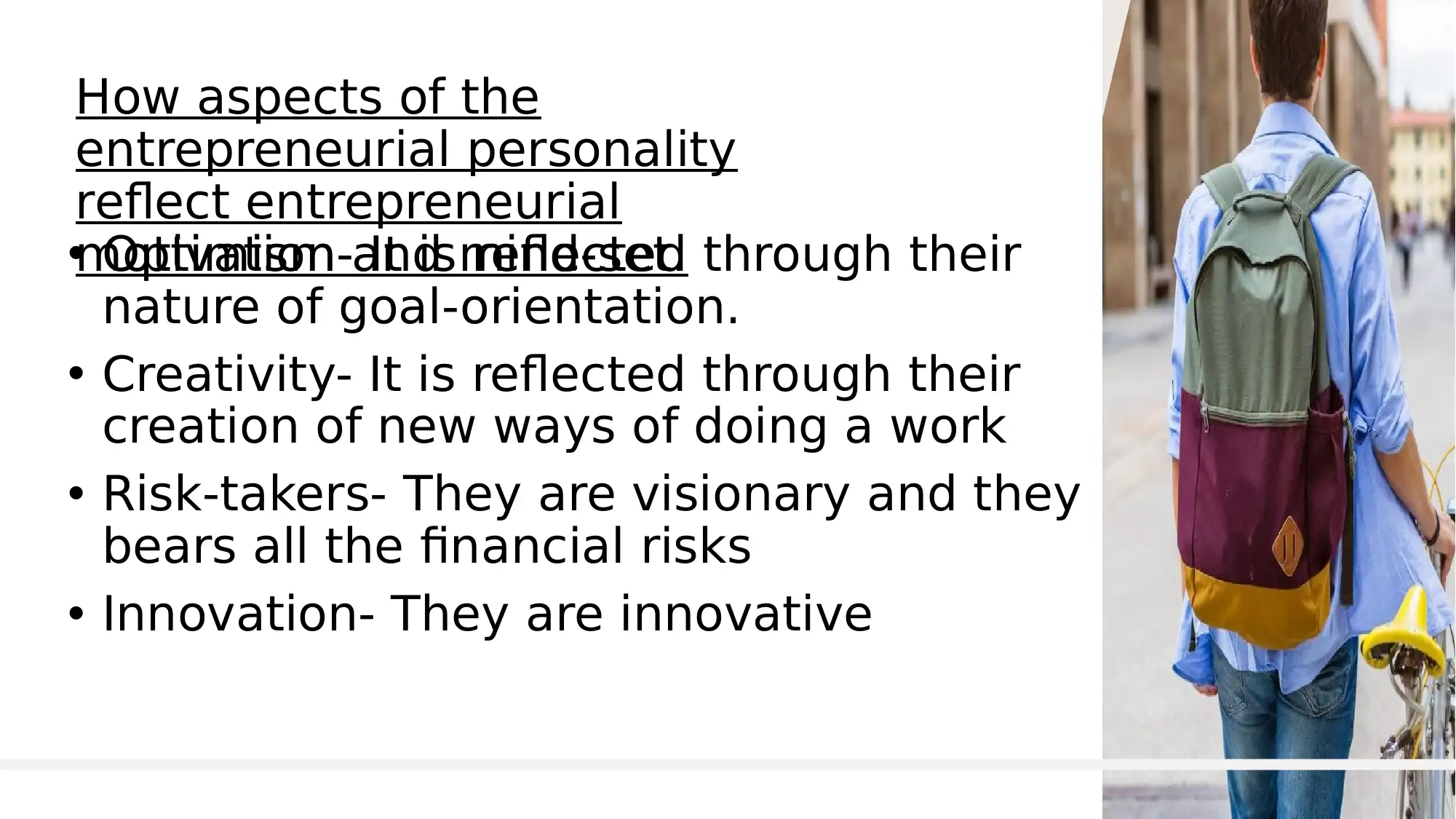





![[object Object]](/_next/static/media/star-bottom.7253800d.svg)